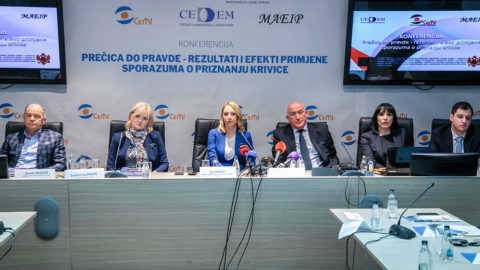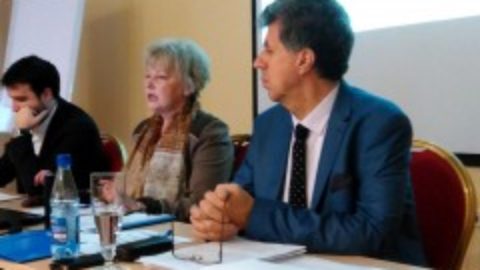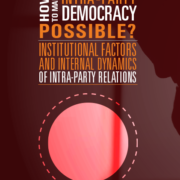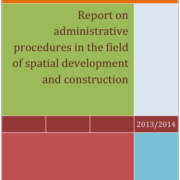Center for Monitoring and Research CeMI is organizing a National Conference „Impact of Personal Vote on Internal Party Democracy – Case of Montenegro“. The purpose of the event is to present the single country study „Impact of Personal Vote on Internal Party Democracy – Case of Montenegro“. The Conference will be held on 21th of July 2015, at the premises of PR Centre, at 10 a.m.
National study „Impact of Personal Vote on Internal Party Democracy – Case of Montenegro“ represents a detailed analysis of the institutional and legal framework and practice of political parties in Montenegro, which together define political situation in the field of elections and political processes within the parties. It focuses on five related aspects of these issues: political system, party system, electoral system, internal party democracy and political campaign. Study also contains concrete examples of internal party practice of parliamentary parties in Montenegro. Authors of this publication are Ph.D. Srdjan Darmanovic, Ph.D. Vladimir Goati, Ph.D. Boris Vukicevic, M.Sc. Zlatko Vujovic, M.Sc. Nikoleta Tomovic and M.Sc. Vlado Dedovic.
The conference will be consisted of two panels: “Internal party democracy: experiences and practice of political parties“ and “Reform of the electoral legislation: likeness and models“. The introductory speech will be given by the Vice President of the Parliament of Montenegro, Mr. Milutin Simovic.
The event forms part of international project Balkan Electoral Comparative Study: Impact of Personal Vote on Internal Party Democracy, implemented within the Regional Research Promotion Programme in the Western Balkans (RRPP), funded by Swiss Agency for Democracy and Cooperation SDC conducted by the University of Fribourg. This project is being implemented in Western Balkans countries, in co-operation with Faculty of Political Sciences, University of Belgrade, Kosovar Think Tank KIPRED, and group of experts from Bosnia and Herzegovina, under mentorship of international team of experts in the field of electoral systems research from the University of Lausanne and the Swiss Centre of Expertise in the Social Sciences (FORS) whose members are Georg Lutz, Brian Kleiner, Nicolas Pekari, Josep Colomer, Åsa Bengtsson and Ioannis Andreadis.


 Montenegrin
Montenegrin








